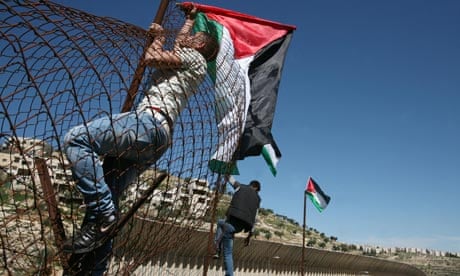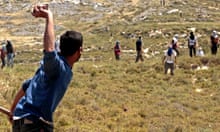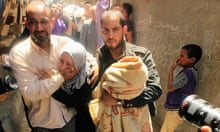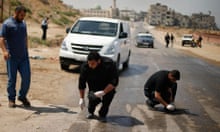Israel is expected to press ahead with construction of the vast West Bank barrier around a convent near the Christian town of Beit Jala, following a ruling from a special appeals committee.
The route of the barrier will separate a small community of elderly nuns at the Cremisan convent from 75% of their land and from a nearby monastery with which it has close ties. The playground of a nursery and a school run by the Cremisan sisters will be bordered on three sides by the wall.
More than 50 Palestinian families will lose free access to their agricultural land, causing economic hardship to the dwindling Christian community.
The campaign against the route of the barrier at Cremisan was taken up by the UK foreign secretary, William Hague, and the archbishop of Westminster, Vincent Nichols. In a letter disclosed by the Guardian last year, Hague told Nichols that he shared his "concerns about the problem of land confiscation by the Israeli authorities affecting the people of Beit Jala and similar Palestinian communities in the occupied territories".
Following a seven-year legal campaign, Israel's special appeals committee this week ruled in favour of the route, which leaves the convent on the Palestinian side of the barrier and the monastery and land belonging to the convent and local families on the Israeli side.
According to the Society of St Yves, a Catholic human rights organisation that represented the nuns, the committee decided that the proposed route was "a reasonable solution that balances Israel's security needs on one hand and freedom of religion and the right to education on the other".
However, the society said the ruling was "highly problematic and unjust". It failed to properly address "the violation of freedom of religion, the right to education as well as the economical damage caused for a unique Christian minority in Beit Jala by the construction of the wall," it said. It is considering an appeal to Israel's supreme court.
The UK government provided indirect funding for the legal case. It says Israel is entitled to build a barrier but it should lie on the internationally recognised 1967 Green Line, not on confiscated Palestinian land. About 85% of the barrier is inside the West Bank. The route is harming the prospects of a two-state solution to the Israeli-Palestinian conflict, according to Britain.
In his Christmas Eve homily in 2011, Nichols offered prayers in support of the community's "legal battle to protect their land and homes from further expropriation by Israel".
Last year Israel's defence ministry told the Guardian: "The route of the security fence in the Beit Jala region is based purely on security considerations. This portion is there solely to keep terror out of Jerusalem."






